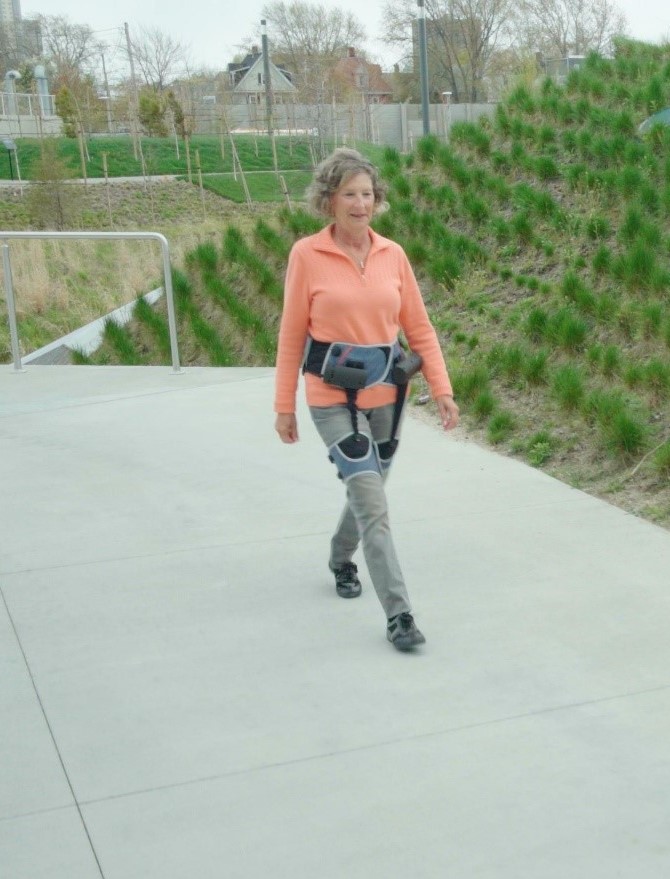
People with Parkinson’s disease frequently develop a problem known as “gait freeze,” in which their legs simply stop stepping forward as they’re walking. A new powered exoskeleton, however, has proven to be very effective at keeping the legs going. Building upon a previous project, the experimental soft-bodied device was developed by scientists from Harvard and Boston Universities.
The device is fastened around the user’s waist and upper thighs, where it utilizes integrated sensors to continuously monitor the current phase of their walking gait. The device uses this data to strategically apply a small amount of motorized assistance via cable-driven actuators, which work in tandem with the wearer’s own muscles to keep their legs swinging forward.
It has already been tested on a 73-year-old man with Parkinson’s disease, who had been suffering gait freeze more than 10 times a day despite previous surgical and pharmacologic treatments.
Almost as soon as he tried the exoskeleton, he was able to walk indoors without experiencing any freezing at all, and had only a few incidents when walking outdoors. Additionally, he was able to simultaneously walk and talk without freezing, which had previously been virtually impossible for him to do.
“We found that just a small amount of mechanical assistance from our soft robotic apparel delivered instantaneous effects and consistently improved walking across a range of conditions for the individual in our study,” said Harvard’s Prof. Conor Walsh, co-corresponding author of a paper on the research, published in Nature Medicine. A commercial model of the exoskeleton is now in process.
Source: Harvard John A. Paulson School of Engineering and Applied Sciences via newatlas.com.
 TEXTILES.ORG
TEXTILES.ORG


